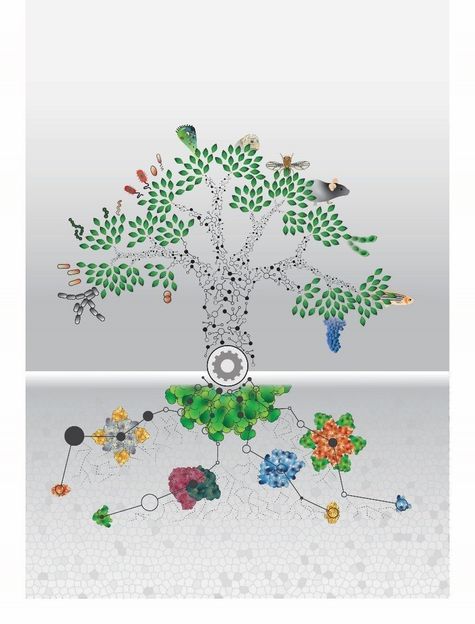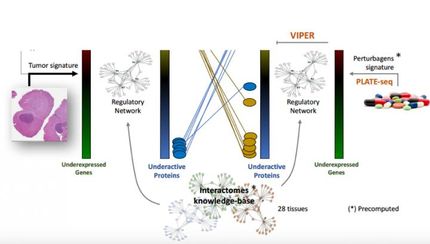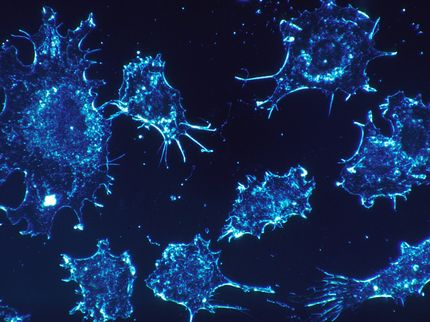Scripps Research Scientists Show Protein Accelerates Breast Cancer Progression in Animal Models
New Discovery Could Lead to Advances in Diagnosis and Therapy
Scientists at The Scripps Research Institute have shown for the first time that a cytokine called pleiotrophin stimulates the progression of breast cancer in both animal and cell culture models. The study, which tested three separate models to determine the role of inappropriate Expression of pleiotrophin, found that it produced striking increases in aggressiveness of the breast cancer cells themselves.
Until this study, the significance of pleiotrophin (PTN) expression in breast cancer had not been clearly established. These new findings could lead to a better understanding of the molecular pathogenesis of breast cancer and focus attention on PTN and its signaling pathway as possible targets for new cancer therapies.
The study also found that the expression of pleiotrophin activated surrounding cells to remodel the tumor microenvironment, induced tumor angiogenesis, and increased the number of receptors for different markers of aggressive breast cancers.
"Breast cancers progress through stages of increasing malignancy triggered by mutations that promote their growth," said Thomas Deuel, the Scripps Research scientist whose laboratory made the discovery. "The major finding of our study demonstrates both in vivo and in vitro that inappropriate expression of PTN not only promotes breast cancer progression but that by itself PTN secretion from human breast cancer cells may be sufficient to shift that progression to a more aggressive form of breast cancer."
In the study, three models were tested to determine if inappropriate expression of PTN alone was sufficient to induce breast cancer or whether the cytokine cooperates with different pathogenic mechanisms to stimulate breast cancer progression.
The new study identified PTN as one factor that activates stromal cells-cells found in the loose connective tissue and induces several features of aggressive breast cancer. While the importance of these cancer cell-stromal cell interactions is well established, only limited progress has been made in identifying the factors that cause stromal cells to initiate tumor progression.
"Our breakthrough findings demonstrate that PTN-activated stromal cells are responsible for the ultimate remodeling of extracellular matrix proteins, as well as the release of factors that stimulate the growth of malignant cancer cells," Deuel said. "We've shown that PTN secreted from breast cancer cells is the key mechanism of stromal cell activation, and that PTN alone is sufficient to stimulate many of the critical signaling pathways that aggressively promote breast cancer progression."
Using genetically modified mouse models, the study found that the inappropriate expression of PTN produced breast cancers of a more aggressive subtype. In those same mouse models, highly malignant cells of scirrhous carcinoma-a hard, fibrous tumor-were found to express very high levels of the mouse mammary tumor virus (MMTV)-Ptn transgene along with increases in collagen, elastin, tumor angiogenesis, and increased size of new blood vessels within the breast cancers-all markers for breast cancer.
"Our study suggests the possibility that PTN expression may account for many of the features of scirrhous carcinoma seen in the breast cancers of these mice," Deuel said. "Pleiotrophin stimulates new collagen of different subtypes and new elastin synthesis. Collagen fragments are known to stimulate growth of carcinoma cells and to stimulate anti-apoptotic pathways, favoring growth of the carcinoma cells."
Original publication: "Secretion of Pleiotrophin Stimulates Breast Cancer Progression Through Remodeling of the Tumor Microenvironment"; Proceedings of the National Academy of Sciences 2007.
Most read news
Topics
Organizations
Other news from the department science

Get the life science industry in your inbox
By submitting this form you agree that LUMITOS AG will send you the newsletter(s) selected above by email. Your data will not be passed on to third parties. Your data will be stored and processed in accordance with our data protection regulations. LUMITOS may contact you by email for the purpose of advertising or market and opinion surveys. You can revoke your consent at any time without giving reasons to LUMITOS AG, Ernst-Augustin-Str. 2, 12489 Berlin, Germany or by e-mail at revoke@lumitos.com with effect for the future. In addition, each email contains a link to unsubscribe from the corresponding newsletter.
More news from our other portals
Last viewed contents

Benchling - San Francisco, USA
Biocartis strengthens management team with general counsel




















































